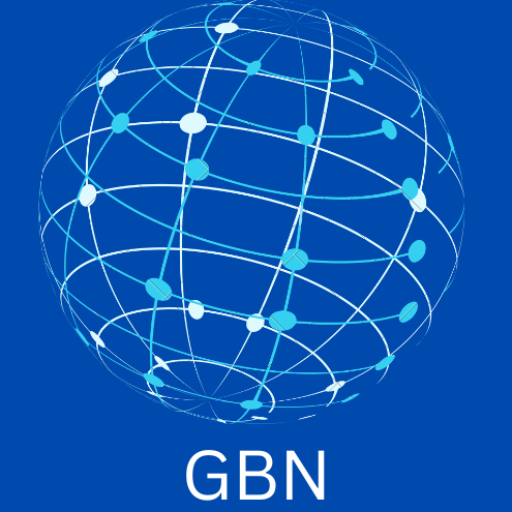Top 20 Emerging Technology Trends Shaping the Future
The pace of technological change is relentless. Innovations like AI, 5G, blockchain, and quantum computing are no longer futuristic concepts—they’re reshaping industries and everyday life. These advancements impact everything from healthcare and finance to transportation and entertainment.
In this blog, we’ll explore the top 20 technology trends that are defining the future and transforming how we live, work, and do business.

1. Artificial Intelligence (AI) and Machine Learning
AI and ML are now integral to nearly every industry, enabling machines to learn from data and make decisions with minimal human intervention. AI powers personalized healthcare, fraud detection, and predictive analytics. However, challenges such as job automation and algorithmic bias remain concerns. The AI market is expected to reach $190 billion by 2025.
2. 5G Technology
5G delivers ultra-fast internet speeds, low latency, and real-time connectivity. This technology is the backbone of smart cities, autonomous vehicles, and IoT. Despite infrastructure costs and regulatory challenges, the 5G market is set to hit $67.7 billion by 2026.
3. Internet of Things (IoT)
IoT connects devices like smart fridges, industrial sensors, and wearable health monitors to enhance efficiency. Security risks are a challenge, as cyberattacks on IoT systems increase. Still, the IoT market is projected to reach $1.6 trillion by 2025.
4. Edge Computing
Edge computing brings data processing closer to the source, reducing latency issues associated with cloud computing. It’s crucial for real-time applications like autonomous cars and industrial automation. The market is expected to grow from $4 billion in 2020 to $15.7 billion by 2025.
5. Blockchain Technology
Beyond cryptocurrencies, blockchain enhances security, transparency, and decentralized data management. It’s used in finance, supply chain management, and healthcare. However, scalability and energy consumption remain concerns. The blockchain market is set to grow to $39.7 billion by 2025.
6. Augmented Reality (AR) & Virtual Reality (VR)
AR and VR are revolutionizing gaming, education, and real estate. While AR overlays digital elements onto the real world, VR immerses users in a fully digital space. The market is expected to reach $209.2 billion by 2025.
7. Quantum Computing
Quantum computers use qubits to solve problems exponentially faster than traditional computers. Industries like drug discovery, cryptography, and optimization stand to benefit. While still experimental, the quantum computing market could hit $64.98 billion by 2030.
8. Robotic Process Automation (RPA)
RPA automates repetitive tasks like invoice processing and customer service, freeing employees for higher-value work. However, automation costs and job displacement are concerns. The RPA market is forecasted to grow from $1.89 billion in 2020 to $13.74 billion by 2028.
9. Cybersecurity Enhancements
With cyberattacks becoming more sophisticated, AI-driven threat detection, encryption, and zero-trust security models are evolving. The cybersecurity market is expected to reach $248.26 billion by 2024.
10. Sustainable Technology
Sustainable tech focuses on green energy, waste management, and eco-friendly processes. Adoption is growing, but high initial costs remain a challenge. The market is projected to reach $26 billion by 2027.
11. Human Augmentation
From exoskeletons to brain-computer interfaces, human augmentation is enhancing physical and cognitive abilities. Expected to hit $298.5 billion by 2027, its applications range from healthcare to defense.
12. AI-Augmented Software Development
AI tools like GitHub Copilot accelerate coding by suggesting real-time solutions. However, security vulnerabilities remain a concern as AI-generated code becomes more prevalent.
13. Industry-Specific Cloud Platforms
Cloud platforms tailored for finance, healthcare, and manufacturing optimize operations and compliance. The industry cloud market is projected to hit $83 billion by 2025.
14. Smart Apps
AI-powered smart apps personalize user experiences in finance, healthcare, and retail. The market is set to grow to $62.4 billion by 2025.
15. Generative AI
Generative AI creates text, images, and music, revolutionizing marketing and content creation. However, ethical concerns about copyright and misuse persist.
16. Continuous Threat Exposure Management (CTEM)
CTEM tools monitor and mitigate cybersecurity risks in real-time, gaining traction in finance, healthcare, and government sectors.
17. AI Trust, Risk, and Security Management (AI TRiSM)
AI TRiSM frameworks focus on ethical AI, fairness, and accountability. Ensuring transparency in AI decision-making remains a key challenge.
18. Platform Engineering
Platform engineering streamlines cloud infrastructure and DevOps, enabling faster software deployment. Companies investing in agile and scalable solutions are driving growth in this sector.
19. Machine Customers
AI-driven systems can autonomously make purchasing decisions, optimizing B2B and B2C transactions. As businesses explore this concept, accountability and control challenges emerge.
20. Augmented Connected Workforce
Hybrid work models leverage AI insights, wearables, and collaboration tools to enhance productivity. The workforce management market is expected to reach $9.3 billion by 2026.
Conclusion
These 20 emerging technology trends are shaping the future by driving automation, connectivity, and efficiency across industries. While challenges like security, ethics, and scalability remain, the impact of these innovations is undeniable.
Which technology excites you the most? Let us know in the comments!
https://globytenews.com/category/education
https://globytenews.com/category/entertainment
https://globytenews.com/category/politics
